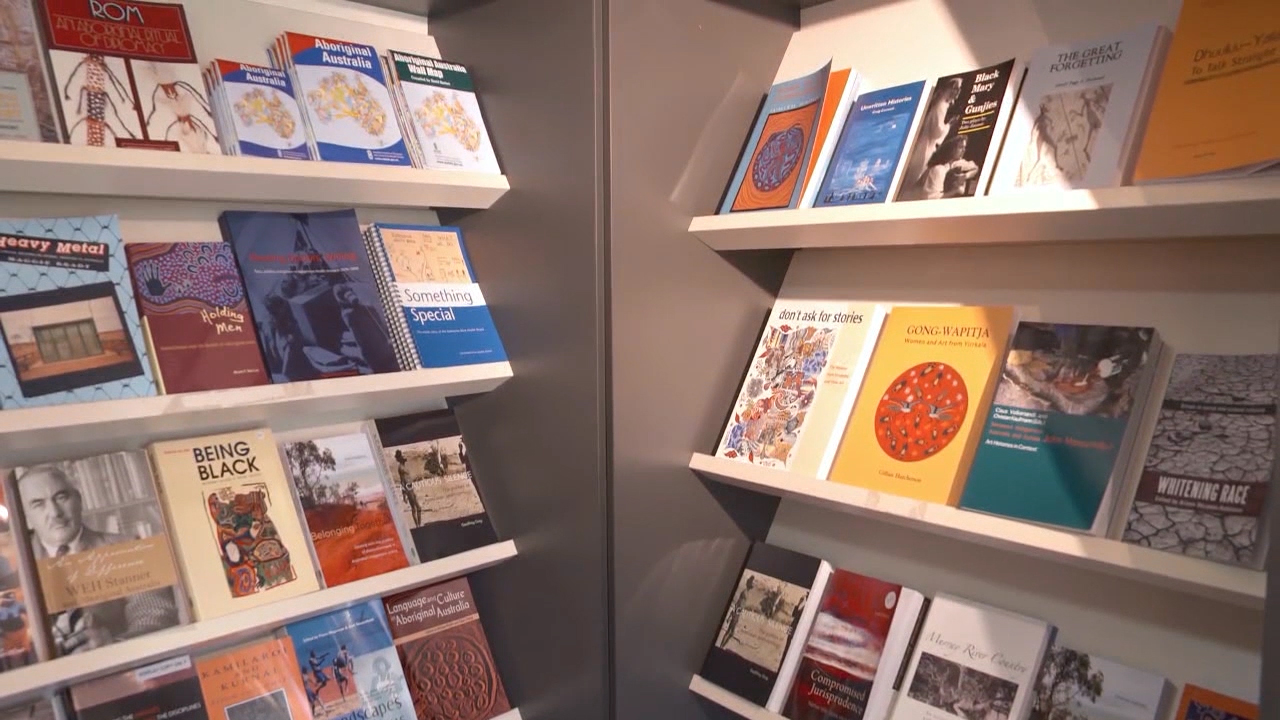|
Aufbau-Verlag
Aufbau Verlag is a German publisher. It was founded in Berlin in 1945 and became the biggest publisher in East Germany (GDR). During that time it specialised in Socialist literature, socialist and Russian literature. Aufbau Verlag (officially styled as aufbau verlag or Aufbau Verlag) is a German publishing house. Established in 1945 in Berlin on behalf of the Cultural Association for the Democratic Renewal of Germany (Kulturbund zur demokratischen Erneuerung Deutschlands e.V.), it quickly became the largest literary publisher in the German Democratic Republic (GDR). In its early years, the publisher focused on the humanistic traditions of German culture, specializing in exile and anti-fascist literature, along with works on literary and philosophical topics. Over time, its catalog expanded to include classical world literature and contemporary German works. History Early years On August 16, 1945, Kurt Wilhelm, Heinz Willmann, Klaus Gysi, and Otto Schiele founded the “Aufbau-V ... [...More Info...] [...Related Items...] OR: [Wikipedia] [Google] [Baidu] |
Gesellschaft Mit Beschränkter Haftung
(; ) is a type of Juridical person, legal entity in German-speaking countries. It is equivalent to a (Sàrl) in the Romandy, French-speaking region of Switzerland and to a (Sagl) in the Ticino, Italian-speaking region of Switzerland. It is an entity broadly equivalent to the private limited company (PLC) in the United Kingdom and many Commonwealth of Nations, Commonwealth countries, and the limited liability company (LLC) in the United States. The name of the GmbH form emphasizes that the owners (, also known as members) of the entity are not personally liable for the company's debts. GmbHs are considered legal persons under German, Swiss, and Austrian law. Other variations include mbH (used when the term is part of the company name itself), and gGmbH () for non-profit companies. The GmbH has become the most common corporation form in Germany because the AG (), the other major company form corresponding to a stock corporation, was much more complicated to form and operate un ... [...More Info...] [...Related Items...] OR: [Wikipedia] [Google] [Baidu] |
Berliner Zeitung
The ''Berliner Zeitung'' (; ) is a daily newspaper based in Berlin, Germany. Founded in East Germany in 1945, it is the only East German paper to achieve national prominence since Reunification of Germany, reunification. It is published by Berliner Verlag. History and profile ''Berliner Zeitung'' was first published on 21 May 1945 in East Berlin. The paper, a center-left daily, is published by Berliner Verlag. After the fall of the Berlin Wall, the paper was bought by Gruner + Jahr and the United Kingdom, British publisher Robert Maxwell. Gruner + Jahr later became sole owners and relaunched it in 1997 with a completely new design. A stated goal was to turn the ''Berliner Zeitung'' into "Germany's ''Washington Post''". The daily says its journalists come "from east and west", and it styles itself as a "young, modern and dynamic" paper for the whole of Germany. It is the only East German paper to achieve national prominence since German reunification, reunification. In 2003, th ... [...More Info...] [...Related Items...] OR: [Wikipedia] [Google] [Baidu] |
Book Publishing Companies Of Germany
A book is a structured presentation of recorded information, primarily verbal and graphical, through a medium. Originally physical, electronic books and audiobooks are now existent. Physical books are objects that contain printed material, mostly of writing and images. Modern books are typically composed of many pages bound together and protected by a cover, what is known as the ''codex'' format; older formats include the scroll and the tablet. As a conceptual object, a ''book'' often refers to a written work of substantial length by one or more authors, which may also be distributed digitally as an electronic book (ebook). These kinds of works can be broadly classified into fiction (containing invented content, often narratives) and non-fiction (containing content intended as factual truth). But a physical book may not contain a written work: for example, it may contain ''only'' drawings, engravings, photographs, sheet music, puzzles, or removable content like paper ... [...More Info...] [...Related Items...] OR: [Wikipedia] [Google] [Baidu] |
Publishing Companies Of Germany
Publishing is the activities of making information, literature, music, software, and other content, physical or digital, available to the public for sale or free of charge. Traditionally, the term publishing refers to the creation and distribution of printed works, such as books, comic books, newspapers, and magazines to the public. With the advent of digital information systems, the scope has expanded to include digital publishing such as e-books, digital magazines, websites, social media, music, and video game publishing. The commercial publishing industry ranges from large multinational conglomerates such as News Corp, Pearson, Penguin Random House, and Thomson Reuters to major retail brands and thousands of small independent publishers. It has various divisions such as trade/retail publishing of fiction and non-fiction, educational publishing, and academic and scientific publishing. Publishing is also undertaken by governments, civil society, and private companies f ... [...More Info...] [...Related Items...] OR: [Wikipedia] [Google] [Baidu] |
Mass Media In Berlin
Mass is an intrinsic property of a body. It was traditionally believed to be related to the quantity of matter in a body, until the discovery of the atom and particle physics. It was found that different atoms and different elementary particles, theoretically with the same amount of matter, have nonetheless different masses. Mass in modern physics has multiple definitions which are conceptually distinct, but physically equivalent. Mass can be experimentally defined as a measure of the body's inertia, meaning the resistance to acceleration (change of velocity) when a net force is applied. The object's mass also determines the strength of its gravitational attraction to other bodies. The SI base unit of mass is the kilogram (kg). In physics, mass is not the same as weight, even though mass is often determined by measuring the object's weight using a spring scale, rather than balance scale comparing it directly with known masses. An object on the Moon would weigh less than it d ... [...More Info...] [...Related Items...] OR: [Wikipedia] [Google] [Baidu] |
Publishing Companies Established In 1945
Publishing is the activities of making information, literature, music, software, and other content, physical or digital, available to the public for sale or free of charge. Traditionally, the term publishing refers to the creation and distribution of printed works, such as books, comic books, newspapers, and magazines to the public. With the advent of digital information systems, the scope has expanded to include digital publishing such as e-books, digital magazines, websites, social media, music, and video game publishing. The commercial publishing industry ranges from large multinational conglomerates such as News Corp, Pearson, Penguin Random House, and Thomson Reuters to major retail brands and thousands of small independent publishers. It has various divisions such as trade/retail publishing of fiction and non-fiction, educational publishing, and academic and scientific publishing. Publishing is also undertaken by governments, civil society, and private companies ... [...More Info...] [...Related Items...] OR: [Wikipedia] [Google] [Baidu] |
Companies Based In Berlin
A company, abbreviated as co., is a legal entity representing an association of legal people, whether natural, juridical or a mixture of both, with a specific objective. Company members share a common purpose and unite to achieve specific, declared goals. Over time, companies have evolved to have the following features: "separate legal personality, limited liability, transferable shares, investor ownership, and a managerial hierarchy". The company, as an entity, was created by the state which granted the privilege of incorporation. Companies take various forms, such as: * voluntary associations, which may include nonprofit organizations * business entities, whose aim is to generate sales, revenue, and profit * financial entities and banks * programs or educational institutions A company can be created as a legal person so that the company itself has limited liability as members perform or fail to discharge their duties according to the publicly declared incorporation pu ... [...More Info...] [...Related Items...] OR: [Wikipedia] [Google] [Baidu] |
1945 Establishments In Germany
1945 marked the end of World War II, the fall of Nazi Germany, and the Empire of Japan. It is also the year concentration camps were liberated and the only year in which atomic weapons have been used in combat. Events World War II will be abbreviated as “WWII” January * January 1 – WWII: ** Germany begins Operation Bodenplatte, an attempt by the ''Luftwaffe'' to cripple Allied air forces in the Low Countries. ** Chenogne massacre: German prisoners are allegedly killed by American forces near the village of Chenogne, Belgium. * January 6 – WWII: A German offensive recaptures Esztergom, Hungary from the Soviets. * January 9 – WWII: American and Australian troops land at Lingayen Gulf on western coast of the largest Philippine island of Luzon, occupied by Japan since 1942. * January 12 – WWII: The Soviet Union begins the Vistula–Oder Offensive in Eastern Europe, against the German Army. * January 13 – WWII: The Soviet Union begins the East Prussian Offen ... [...More Info...] [...Related Items...] OR: [Wikipedia] [Google] [Baidu] |
Treuhandanstalt
The (, " Trust agency"), colloquially referred to as , was an agency established by the government of the German Democratic Republic to reprivatise/ privatise East German enterprises, Volkseigene Betriebe (VEBs), prior to German reunification. Created by the Volkskammer on 17 June 1990, it oversaw the restructure and sale of about 8,500 state-owned companies with over four million employees. At that time, it was the world's largest industrial enterprise, controlling everything from steel works to the Babelsberg Studios. Responsibilities The Treuhand was responsible for more than just the 8,500 state-owned enterprises. It also took over around 2.4 million hectares of agricultural land and forests, the property of the former Stasi, large parts of the property of the former National People's Army, large-scale public housing property, and the property of the state pharmacy network. On the day of reunification, 3 October 1990, it took over the property of the political parties a ... [...More Info...] [...Related Items...] OR: [Wikipedia] [Google] [Baidu] |
Kommanditgesellschaft
A (abbreviated KG, ; from + ) is the German name for a limited partnership business entity and is used in German, Belgian, Dutch, Austrian, and some other European legal systems. In Japan, it is called a '' gōshi gaisha''. Its name derives from the commenda, an early Italian medieval form of limited partnership. In Indonesia, it is legally called ''commanditaire vennootschap'' (CV) or ''Persekutuan Komanditer'', derived from colonial Dutch administration. Description Partnerships may be formed in the legal forms of General Partnership (, GbR), or specialized in trading (, OHG), or Limited Partnership (''Kommanditgesellschaft'', KG). In the OHG, all partners are fully liable for the partnership's debts, whereas in the KG there are general partners (''Komplementär'') with unlimited liability and limited partners (''Kommanditisten'') whose liability is restricted to their fixed contributions to the partnership. Although a partnership itself is not a legal entity, it may ... [...More Info...] [...Related Items...] OR: [Wikipedia] [Google] [Baidu] |
Russian Literature
Russian literature refers to the literature of Russia, its Russian diaspora, émigrés, and to Russian language, Russian-language literature. Major contributors to Russian literature, as well as English for instance, are authors of different ethnic origins, including bilingual writers, such as Kyrgyz novelist Chinghiz Aitmatov. At the same time, Russian-language literature does not include works by authors from the Russian Federation who write exclusively or primarily in the native languages of the indigenous non-Russian ethnic groups in Russia, thus the famous Dagestani poet Rasul Gamzatov is omitted. The roots of Russian literature can be traced to the Early Middle Ages when Old Church Slavonic was introduced as a liturgical language and became used as a literary language. The native Russian vernacular remained the use within oral literature as well as written for decrees, laws, messages, chronicles, military tales, and so on. By the Age of Enlightenment, literature had gro ... [...More Info...] [...Related Items...] OR: [Wikipedia] [Google] [Baidu] |






